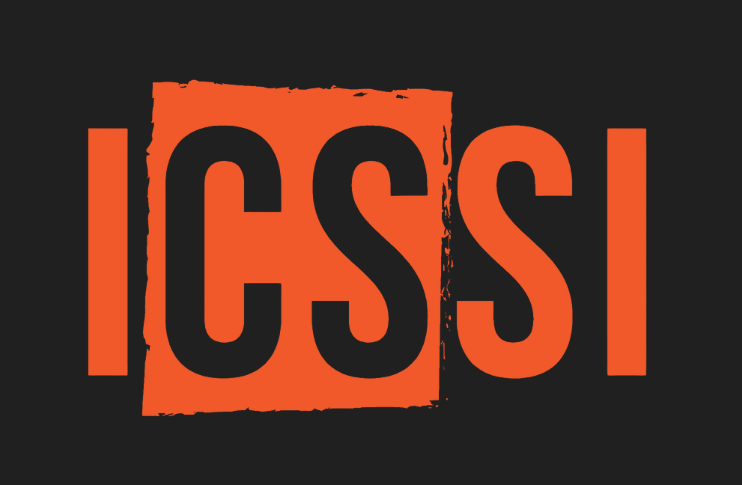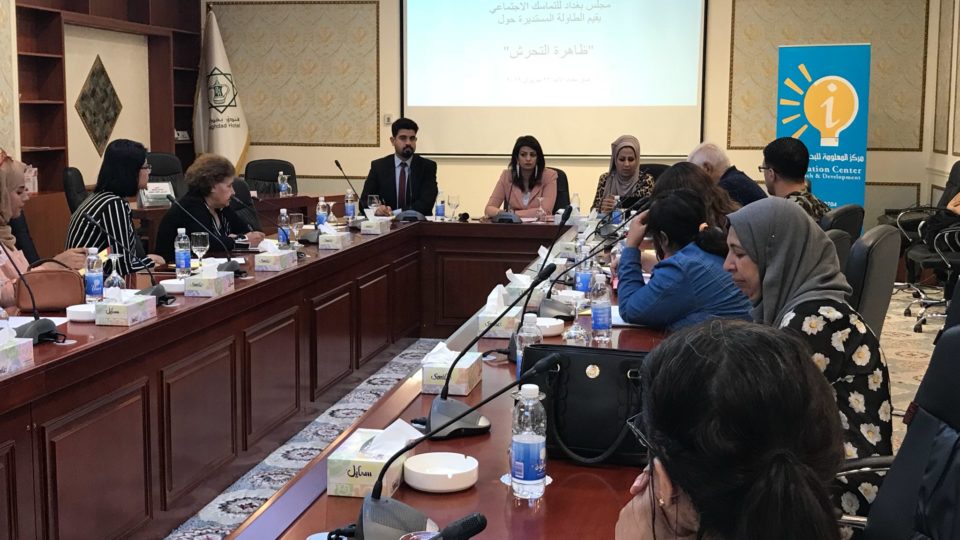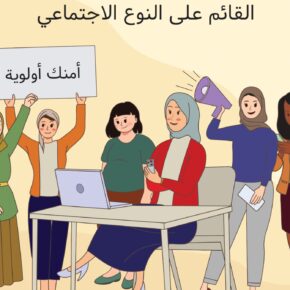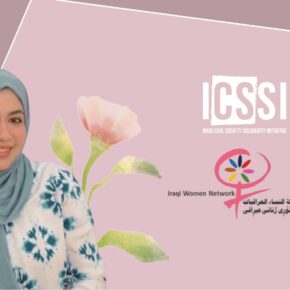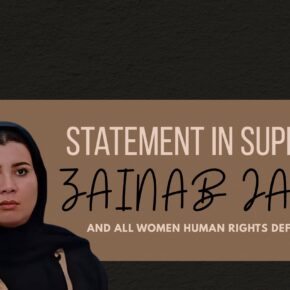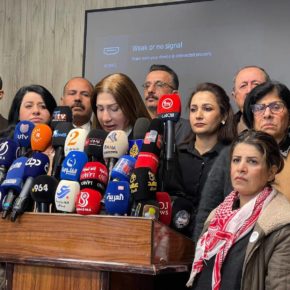Harassment is a Key Issue for the Baghdad Council For Social Cohesion
On 23 June 2019 at the Baghdad Hotel Hall, the Baghdad Council for Social Cohesion held a dialogue session on the phenomenon of harassment and the urgent need to develop effective means of confronting it, from both a social and an economic perspective. Recognizing the profound impact harassment has on women’s lives led 21 people (including members of the Kahramana masar (path), representatives of civil society organizations, unions, trade unions and women activists to come together to work out ways to end this powerful constraint on women.

The session included a broad discussion of harassment in three prominent forms: social, economic and legal. Participants came up with a set of recommendations to combat it, which will be brought to the relevant authorities. Only with powerful grass roots and political effort can this phenomenon, which so seriously damages women’s lives, be brought to an end.
The first part of the session dealt with social repression and its causes. Some of the factors identified were: poverty, large families being forced to live in cramped spaces, a preoccupation with securing the necessities for survival leaving insufficient time for attentive child rearing, the predominance of single sex schools, and customs and traditions which blame the victim instead of the perpetrator. All too often the victim is encouraged or expected to stay silent and stoically endure discrimination. This culture is supported by a general lack of awareness of the laws in place to protect women. Simply educating both women and men about their legal rights and responsibilities would reduce harassment.
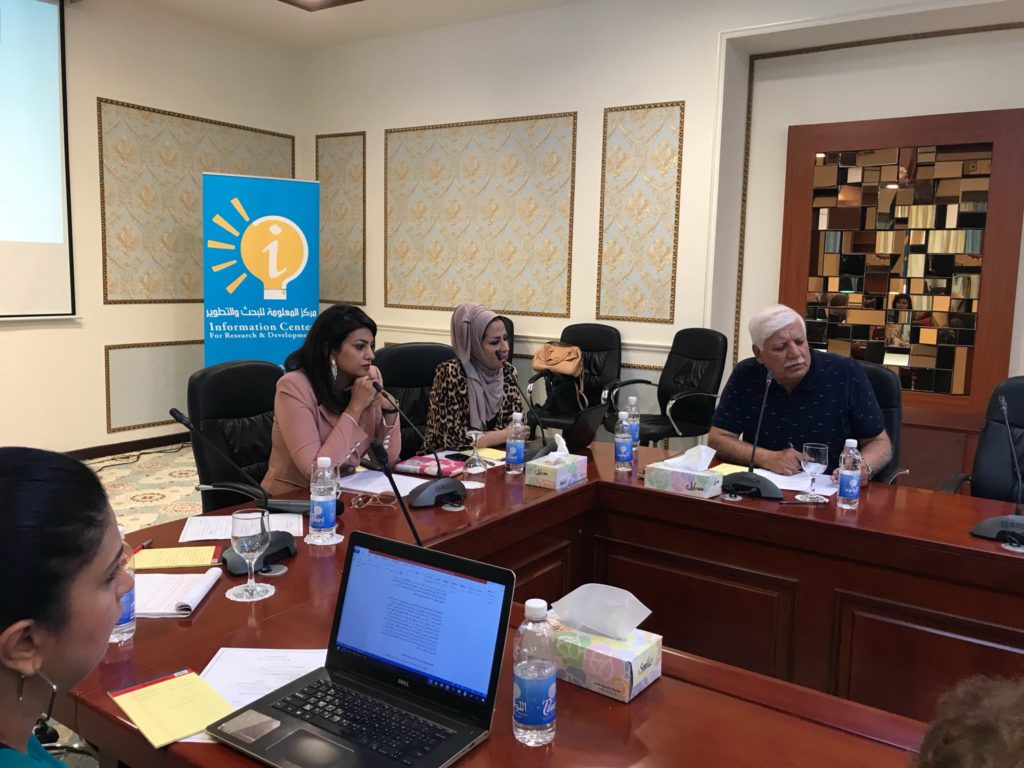
The
group then looked at harassment along a second axis: an economic one. For instance, in most
cases, the harasser occupies a higher social and financial position than the
victim. This power imbalance allows for more violations, and often ones which are
difficult to identify and prosecute. These violations are perpetrated against
the weakest and most vulnerable, and all too often these are women. Women are
subjected to many pressures at work, the choice becomes whether to surrender to
harassment or leave employment altogether. This makes many women economically vulnerable as they are generally,
for a number of societal reasons, responsible for their family’s livelihood.
When the well-being of families is consistently under threat, people feel
insecure and defensive, and the possibility of crises and wars tends to
increase. Although women are in theory protected by law (specifically Iraq’s
Labor Law, articles 10-11 of Chapter 3 of the Basic Principles and the International
Labor Organization’s approval of the elimination of violence and harassment in
the workplace), there continues to be a major lack in reporting and prosecuting
harassment violations. This session concluded that awareness must be raised on
this issue and trade unions must play a larger role in protecting women
workers.
The final axis across which harassment was discussed was the legal one. To date, Iraq has no clear and explicit law on the issue. ‘Harassment’ in not mentioned in the law, though there are other expressions which aim to address and reduce it (such as “disgraceful actions or acts of a sexual nature”). Although there are approximately 500 texts on criminal law in Iraq, very little is currently being done in the courts to tackle the issue of harassment. Judges must work to fit and adapt cases before them under existing legislation (such as articles 400-401-402 which refer to crimes against modesty. Prosecuting such crimes requires clear evidence and witnesses, not always readily available in harassment cases).
The meeting generated a set of recommendations to be followed up by a volunteer committee responsible pushing forward of the actions set out here:
– pressure the Ministry of Education and other concerned parties to restore the system of mixed-sex schools, at least in primary education;
– the organization, For Her, currently preparing a draft law addressing the issue of harassment, should receive support and advice from legal experts so that the law is as strong and effective as it can be;
– intensify awareness-raising campaigns and educate all people about the rights of women to respond to and expose their harassers.
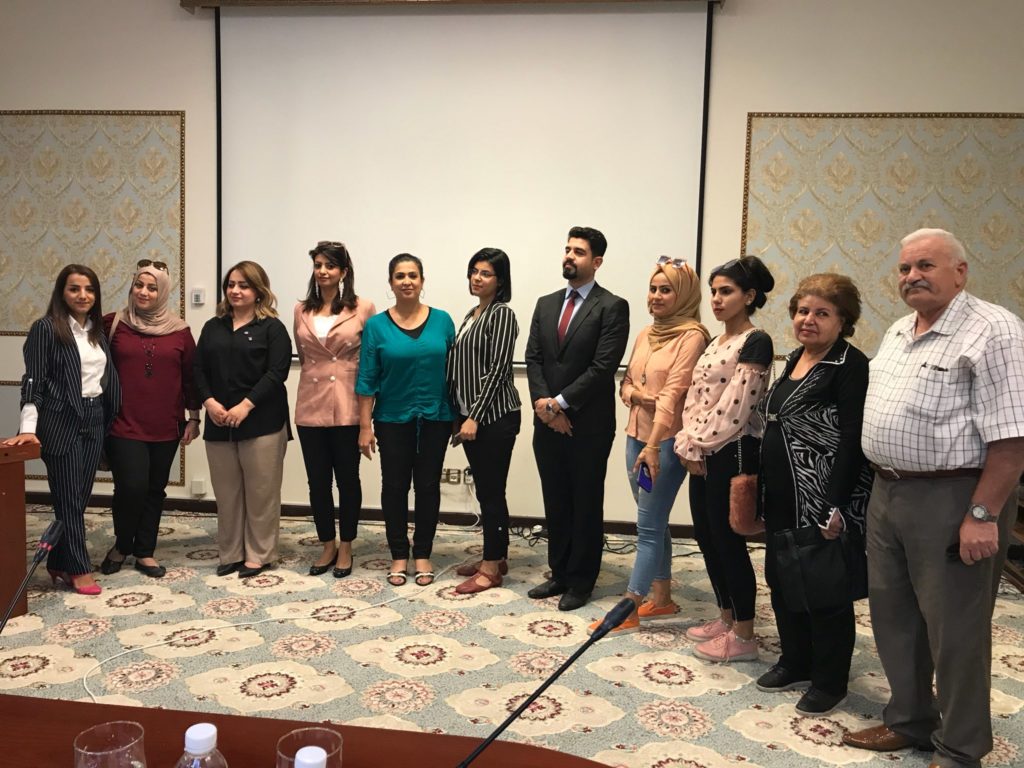
The Baghdad Council for Social Cohesion is one of the councils operating in 4 governorates of Iraq (Sulaymaniyah, Baghdad, Fallujah and Missan). The Council organized its workshop in cooperation with the Information Center for Research and Development, the Kahramana masar and the Iraqi Civil Society Solidarity Initiative and the Un Ponte Per Italian Organization within the framework of the Iraqi Social Forum, and with the support from the EU project, “Youth of Mesopotamia for Democratic Governance and Peaceful Coexistence in Iraq.”
Iraqi Social Forum
